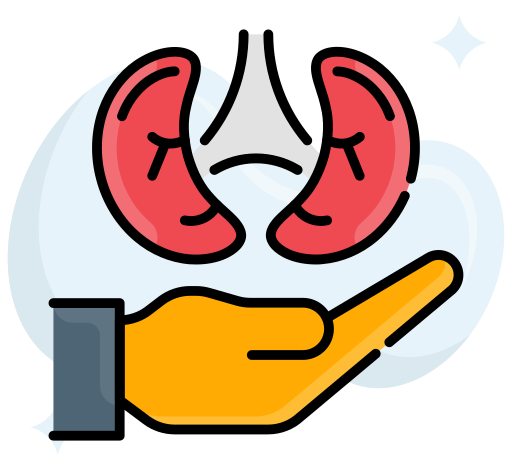What Happens When You Donate Your Body to Science? A Complete Guide

Death makes most people uncomfortable. Talking about what happens to your body after it has been donated makes people queasy? Even more so.
But here’s the thing. Planning ahead removes the burden from your family. It gives you control over your final selfless contribution to the world.
Donating a body to science offers something traditional burial can’t. Your passing becomes meaningful in ways you might not expect.
The Reality Behind Body Donation
When you donate your body to science, you’re doing more than just avoiding funeral costs. Medical students need real human anatomy to learn surgical techniques. Researchers study tissue samples to understand diseases. Your donation trains the doctors who might save your grandchildren’s lives someday.
The process starts long before you pass away. Most programs require pre-registration. You fill out paperwork. Answer health questions. Receive an ID card to keep in your wallet.
Some people worry their bodies won’t be accepted. Valid concern. Programs do have guidelines. But they’re more flexible than you might think.
What Makes You Eligible
Age doesn’t automatically disqualify you. Neither does having a medical condition. Programs evaluate each case individually.
Here’s what typically excludes donors:
- Infectious diseases like HIV or hepatitis.
- Extreme obesity or emaciation.
- Recent major surgery or autopsy.
- Severe trauma to the body.
- Decomposition after death.
Your family’s financial situation doesn’t matter. Social status doesn’t matter. What matters is whether your body can serve its educational purpose.
Geography plays a role, too. Distance from the acceptance facility affects transportation logistics. Most programs work within specific state boundaries.
See also: Why Clean Water Means Better Business: The Overlooked Factor in Customer Experience
The Process After Death
Your family calls the donation program. Not the funeral home. Not 911. This single call sets everything in motion.
The program arranges transportation, usually within 24 to 48 hours. They handle all the paperwork your family would normally deal with: Death certificates. Legal documentation. The stressful administrative maze that follows loss.
Your body goes to a medical school or research facility. Students and researchers treat it with respect. They learn anatomy. Practice surgical procedures. Study disease processes that might save future lives.
The timeframe varies. Some programs keep bodies for educational purposes for several months. Others might need them for up to three years. Depends on the research needs and academic schedules.
What Your Family Should Know
Your loved ones won’t plan a traditional funeral. At least not right away. The body isn’t available for viewing after donation acceptance.
But that doesn’t mean no memorial service. Families often hold celebrations of life. Share memories. Honor your wishes. They just do it without the casket present.
Most programs provide cremated remains back to families. This happens after the educational or research use is complete. Some families scatter ashes in meaningful places. Others keep them. Your family decides.
The waiting period tests patience. Months or years pass before remains return. For some families, this extended timeline brings peace. For others, it feels difficult. Know your family’s emotional needs before committing.
The Financial Side Nobody Talks About
Traditional funerals cost thousands. Caskets, burial plots, headstones, services. The bills pile up during grief.
Body donation programs typically cover transportation costs. They handle the cremation. Return the ashes at no charge to your family. This eliminates the immediate financial pressure.
Your family still might want a memorial service. That’s separate. But the core expenses disappear.
Some people choose donation specifically for financial relief. Others want the medical contribution. Both reasons are valid. Your motivation doesn’t diminish the value.
Making Your Decision Official
Talking to your family comes first. Surprises during grief hurt relationships. Explain your reasoning. Listen to their concerns. Some family members struggle with the idea initially.
Register with a program that matches your values. Research their accreditation status. Understand their specific requirements. Ask questions about the timeline and return of remains.
Documentation matters. Keep copies of your consent forms accessible. Tell multiple family members where to find them. Add the program’s contact information to your emergency contacts.
Update your advance directives. Include body donation in your will or living trust. Legal clarity prevents conflicts later.
Common Fears People Don’t Voice
Will doctors treat your body carelessly? Programs follow strict ethical guidelines. Medical students learn professionalism alongside anatomy. Disrespect leads to dismissal from programs.
What if you change your mind? You can revoke consent anytime while living. Your family can also decline donations after death. The choice always remains yours.
Does religious faith conflict with donation? Many faiths support it. Some have concerns. Speaking with your spiritual advisor helps clarify personal alignment.
Can you still have an open casket service? Not with most programs. The donation happens too quickly. Plan alternative memorial options if this matters to your family.
The Legacy Question
Some people want their name on a building. Others want a scholarship fund. Body donation creates a different legacy of selflessness.
Surgeons who learned on donated bodies save lives daily. Cancer researchers studying donated tissue might discover treatments. Medical students who practice on real anatomy become competent doctors.
You won’t see the direct results. Neither will your family. But the ripple effects spread further than most legacies. That emergency room doctor who saves a car accident victim? They learned on donated bodies. The oncologist who catches cancer early? Same thing.
Final Thoughts Worth Considering
Death comes for everyone. How your body serves afterward remains one of your last autonomous choices.
Body donation isn’t for everyone. It requires comfort with the unknown. Trust in medical education. Acceptance that your physical form serves a purpose beyond ceremony.
For those who choose it, the decision brings peace. Your passing means something tangible. Your family faces less financial stress. Future generations benefit from what you provided.
The conversation starts now while you’re healthy. At the same time, you can explain your reasoning. At the same time, your family can ask questions and process their feelings.
Your body. Your choice. Your lasting contribution.




